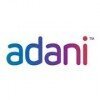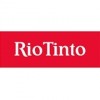Filter interviews by
Vedanta Limited Interview Questions and Answers
29 Interview questions
Civil engineering involves concrete, cement, and design methods essential for constructing durable structures.
Concrete is a composite material made of cement, water, aggregates, and additives, used for its strength and durability.
Cement acts as a binding agent in concrete, with types like Portland cement being the most common for construction.
Design methods include Limit State Design, which ensures safety and serv...
Costs associated with the current construction project value include materials, labor, equipment, permits, and overhead expenses.
Materials such as concrete, steel, and wood are a significant cost in construction projects.
Labor costs include wages for workers, subcontractors, and project managers.
Equipment costs cover the rental or purchase of machinery and tools needed for the project.
Permits and fees are required...
MTBF is the average time between failures, while MTTR is the average time to repair a failed system.
MTBF stands for Mean Time Between Failures and represents the average time a system operates before a failure occurs.
MTTR stands for Mean Time To Repair and represents the average time it takes to repair a failed system and restore it to normal operation.
MTBF is a measure of system reliability, while MTTR is a measu...
Latent heat is the heat energy absorbed or released during a phase change without a change in temperature.
Latent heat is the energy required to change the state of a substance without changing its temperature.
It is the heat energy absorbed or released during processes like melting, boiling, or condensation.
During phase changes, the energy is used to break or form intermolecular bonds.
For example, when ice melts in...
Company balance as per Companies Act, 2013 refers to the financial statement showing the assets, liabilities, and equity of a company.
Company balance is prepared annually by companies to provide a snapshot of their financial position.
It includes assets (such as cash, inventory, property), liabilities (such as loans, accounts payable), and equity (ownership stake).
The balance sheet must adhere to the format and dis...
Working capital is the difference between current assets and current liabilities in a company.
Working capital is essential for day-to-day operations of a business
It indicates the company's ability to meet short-term obligations
Formula: Working Capital = Current Assets - Current Liabilities
Examples of current assets: cash, accounts receivable, inventory
Examples of current liabilities: accounts payable, short-term l...
Sales involves the process of persuading potential customers to purchase a product or service.
Sales is about building relationships with customers
Understanding customer needs and providing solutions
Effective communication and negotiation skills are crucial
Closing deals and meeting sales targets
Examples: cold calling, product demonstrations, follow-up emails
My favorite topic in optics is the study of light-matter interactions.
I am fascinated by how light interacts with different materials and how it can be manipulated to achieve specific outcomes.
I am particularly interested in the field of photonics and how it is being used to develop new technologies such as optical computing and quantum communication.
I enjoy learning about the different types of optical materials ...
The procedure of testing a transformer involves several steps to ensure its proper functioning.
Visual inspection of the transformer for any physical damage or defects
Measurement of the transformer's winding resistance and insulation resistance
Testing the transformer's voltage ratio and polarity
Checking the transformer's oil level and quality
Performing a load test to determine the transformer's efficiency and volta...
Aluminum extraction involves mining bauxite ore, refining it to alumina, and then reducing it to aluminum through electrolysis.
Bauxite Mining: Bauxite, the primary ore of aluminum, is extracted from open-pit mines, primarily found in tropical and subtropical regions.
Bayer Process: The bauxite is crushed and treated with sodium hydroxide to produce alumina (aluminum oxide) through a process called the Bayer process...
Vedanta Limited Interview Experiences
48 interviews found
I appeared for an interview in Jan 2025.
(3 Questions)
- Q1. I do good supervisory
- Q2. And promotion for my work
- Q3. No question and good
(2 Questions)
- Q1. I do good supervisory
- Q2. And my promotion for my job
Interview Preparation Tips
Basic exam with some technical questions
Group of 6 were given a topic and we discussed.
(2 Questions)
- Q1. Difference between structural bridge and concrete bridge?
- Ans.
Structural bridges can be made of various materials while concrete bridges specifically use concrete as the primary material.
Structural bridges can be made of steel, wood, or other materials, while concrete bridges are primarily made of concrete.
Concrete bridges are known for their durability and strength, making them a popular choice for infrastructure projects.
Structural bridges may require more maintenance and upkee...
- Q2. Howrah bridge structure?
- Ans.
The Howrah Bridge is a cantilever bridge that spans the Hooghly River in West Bengal, India.
Built in 1943, it is one of the busiest bridges in the world, carrying over 100,000 vehicles and countless pedestrians daily.
The bridge does not have any nuts or bolts and is held together by rivets.
It is a famous landmark in Kolkata and is often referred to as the 'Gateway of Kolkata'.
Interview Preparation Tips
I applied via Campus Placement and was interviewed in Feb 2024. There were 3 interview rounds.
It Consists of 2 Sections.
One is Pure Aptitude and other is Core.
They divided us into group of 6 members and the topic was effect of e-learning on Students.
(4 Questions)
- Q1. Why you choose Vedanta ?
- Ans.
I chose Vedanta for its commitment to sustainability, innovation, and opportunities for professional growth in the engineering field.
Vedanta's focus on sustainable practices aligns with my values; for example, their initiatives in renewable energy.
The company's diverse portfolio in mining and metals offers a dynamic work environment, allowing me to apply my engineering skills in various sectors.
Vedanta's emphasis on in...
- Q2. How the wheels of Locomotive Diesel Engine Comes to Action ? what is the process that undergoes here
- Ans.
The wheels of a locomotive diesel engine come to action through a process called combustion, where fuel is burned to generate power.
Fuel is injected into the combustion chamber
The fuel is ignited by a spark plug or compression
The burning fuel creates high-pressure gases that push the pistons
The pistons turn the crankshaft, which is connected to the wheels
The rotational motion of the crankshaft is transferred to the whe...
- Q3. Tell me about your future goals ?
- Q4. Brief about your strengths and weekness
Interview Preparation Tips
- Internal Combustion Engine
- Refrigeration and Air Conditioni
- gears
- Thermodynamics
- Automobiles
- Supply Chain Management
I applied via Campus Placement and was interviewed in Jan 2024. There were 2 interview rounds.
The test was easy and the technical questions were also basic
(4 Questions)
- Q1. Most questions were about my final year project and resume. Prepare technical concepts mentioned in your resume.
- Q2. Loads considered, material properties in my fyp
- Ans.
Understanding the loads considered and material properties in my final year project.
Considered loads include static, dynamic, and impact loads
Material properties such as strength, stiffness, and ductility are crucial for design
Testing methods like tensile testing and impact testing are used to determine material properties
Examples: analyzing the load distribution on a bridge structure, selecting materials for a car bum...
- Q3. Cycle of Internal combustion engine and also all the components
- Ans.
The cycle of an internal combustion engine involves intake, compression, power, and exhaust strokes.
Intake: Air and fuel mixture is drawn into the cylinder
Compression: The mixture is compressed by the piston
Power: The spark plug ignites the mixture, causing an explosion and pushing the piston down
Exhaust: The exhaust gases are expelled from the cylinder
- Q4. Diesel cycle, stress ,strain, resilience and toughness
I applied via Campus Placement and was interviewed in Jan 2024. There were 3 interview rounds.
Questions related to quant, verbal and logical reasoning
Subgroups were made and a topic was given for the GD. Took place in online mode
(2 Questions)
- Q1. Core questions from mechanical
- Q2. Questions related to the internships carried so far
Interview Preparation Tips
I applied via Approached by Company and was interviewed in Dec 2023. There were 2 interview rounds.
Average level questions
(2 Questions)
- Q1. I was asked to introduce myself
- Q2. About different subjects I studied
Interview Preparation Tips
I applied via Walk-in and was interviewed in May 2024. There was 1 interview round.
(2 Questions)
- Q1. Brief about your self
- Q2. Family details and which city you belong
- Ans.
I come from a close-knit family in a vibrant city known for its rich culture and beautiful parks.
My family consists of four members: my parents, my younger sister, and me.
We enjoy spending weekends together, often exploring local museums or hiking in nearby nature reserves.
My city is known for its annual arts festival, which showcases local talent and attracts visitors from all over.
We have a strong community spirit, w...
Interview Preparation Tips
I applied via Campus Placement and was interviewed in Jan 2024. There were 2 interview rounds.
In test there was 8 sections total.in which 7 sections contain 7 questions each which was mainly aptitude, comprehensive,pie charts etc.., and 8 sections is regarding electrical engineering,30 questions for 30 minutes
We 29 people got selected for group discussion.they divided 3 groups each contains 10 members.our group discussion topic was what India should do to a electrical vehicle sustainable country by 2030?
Interview Preparation Tips
- Introduction, projects,
- Intership
- Power System
- Electrical Machines
I applied via Referral and was interviewed in Feb 2024. There was 1 interview round.
(2 Questions)
- Q1. Lt motor megger value
- Q2. HT motor megger value
- Ans. Grater then 1 Giga Ohm
I applied via Campus Placement and was interviewed in Sep 2023. There was 1 interview round.
(2 Questions)
- Q1. Questions were related to the non ferrous extractive metallurgy They may ask about the uses , application of the ores that are being used to extract the metal . They also ask basic chemistry question . Th...
- Q2. Nothing to share
Interview Preparation Tips
Top trending discussions






Vedanta Limited Interview FAQs
Some of the top questions asked at the Vedanta Limited interview -
The duration of Vedanta Limited interview process can vary, but typically it takes about less than 2 weeks to complete.
Tell us how to improve this page.
Vedanta Limited Interviews By Designations
- Vedanta Limited Graduate Engineer Trainee (Get) Interview Questions
- Vedanta Limited Graduate Trainee Interview Questions
- Vedanta Limited Assistant Manager Interview Questions
- Vedanta Limited Management Trainee Interview Questions
- Vedanta Limited Mining Engineer Interview Questions
- Vedanta Limited Process Controller Interview Questions
- Vedanta Limited Associate Manager Interview Questions
- Vedanta Limited Post Graduate Engineer Trainee [pget] Interview Questions
- Show more
Interview Questions for Popular Designations
- Graduate Engineer Trainee (Get) Interview Questions
- Graduate Trainee Interview Questions
- Associate Interview Questions
- Senior Executive Interview Questions
- Intern Interview Questions
- Software Developer Interview Questions
- Business Analyst Interview Questions
- System Engineer Interview Questions
- Show more
Overall Interview Experience Rating
based on 41 interview experiences
Difficulty level
Duration
Interview Questions from Similar Companies
Vedanta Limited Reviews and Ratings
based on 500 reviews
Rating in categories
|
Associate Manager
247
salaries
| ₹12 L/yr - ₹21.5 L/yr |
|
Assistant Manager
193
salaries
| ₹8.5 L/yr - ₹13.9 L/yr |
|
Deputy Manager
135
salaries
| ₹18 L/yr - ₹28 L/yr |
|
Graduate Engineer Trainee (Get)
56
salaries
| ₹6 L/yr - ₹14 L/yr |
|
Process Controller
42
salaries
| ₹4 L/yr - ₹8.1 L/yr |

Hindalco Industries

Aditya Birla Group

Vedanta Aluminium

Vedanta Resources
- Home >
- Interviews >
- Vedanta Limited Interview Questions













